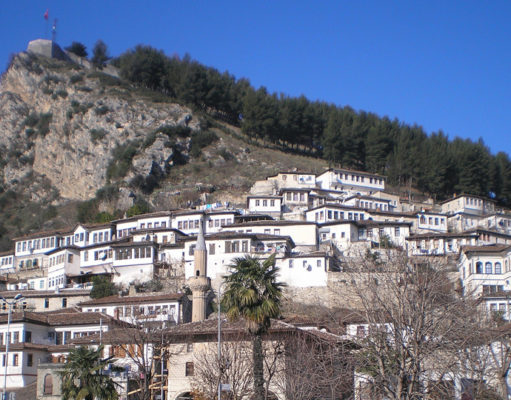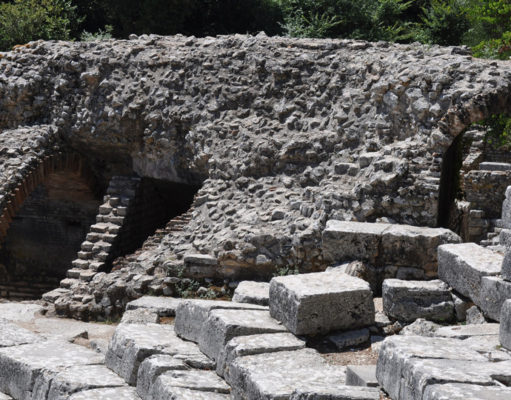Albania is a country on the Balkan peninsula, with an area of 28,748 sq. km. (11,100 sq. mi.), similar in size to the U.S. state of Maryland. It borders Montenegro to the northwest, Kosovo to the northeast, North Macedonia to the east, and Greece to the southeast and south. It possesses coastline of 316 km. (196 mi.) on the Adriatic and Ionian Seas.
Albania is known for its diversified topography. The interior of the country is mostly mountainous, including the Albanian Alps and the Sharr Mountains in the north, the Skanderbeg and Korab Mountains in the center, and the Pindus and Ceraurian Mountains in the south. Mt Korab (elevation 2,764 m./9,068 ft.), on the Albania / North Macedonia border, is the highest peak in both countries and the fourth highest on the Balkan Peninsula.
The coastal lowlands in the west of the country are by and large an alluvial plain, with rich, productive soil. Most of the population lives here.
Albania boasts eight river systems running through it and over 250 lakes. The catchment basis of the river Drin is one of the most biologically diverse regions of Europe. Lake Shkodra, shared with neighboring Montenegro, is the largest lake in southern Europe. Lake Ohrid, shared with North Macedonia, is one of the oldest lakes in the world. The Prespa Lakes, shared with North Macedonia and Greece, is home to Prespa National Park. The Ohrid-Prespa Transboundary Reserve is part of UNESCO’s World Network of Biosphere Reserves.



